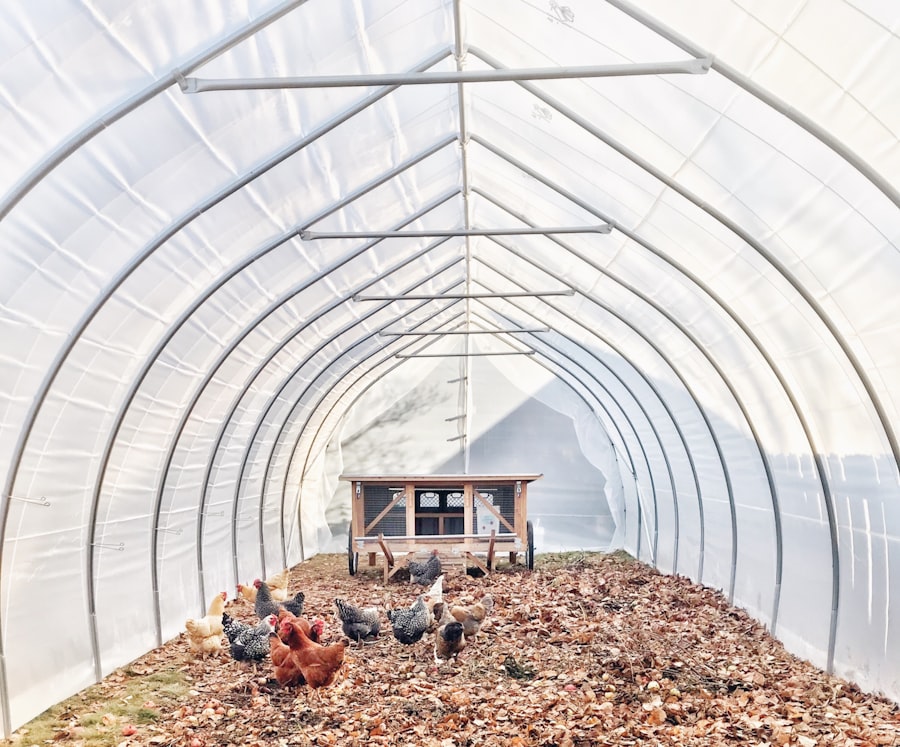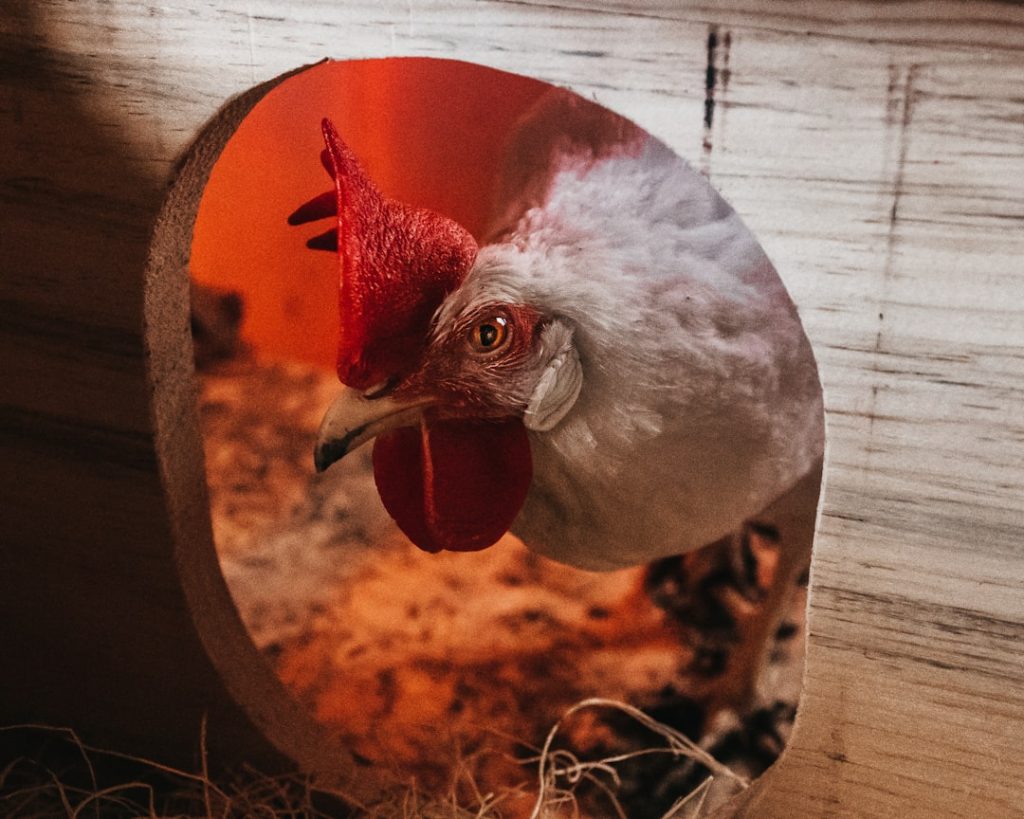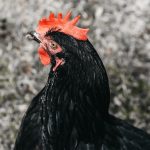Raising chickens can be a rewarding and challenging endeavor, with one of the primary concerns being the protection of the flock from predators. Various animals, including foxes, raccoons, hawks, and domestic dogs, can pose significant threats to chickens, their eggs, and chicks. It is crucial for chicken owners to identify and understand the specific risks their flock may encounter in order to implement effective protective measures.
Mammalian predators, such as foxes, raccoons, and weasels, are common threats to chickens. These animals are known for their ability to infiltrate coops and runs, often during nighttime hours, to prey on unsuspecting birds. Avian predators, particularly birds of prey like hawks and owls, also present a considerable danger to free-ranging chickens.
These skilled hunters can quickly capture and carry off chickens with remarkable speed and efficiency. Recognizing and comprehending these potential threats is essential for chicken owners to develop and implement appropriate safety measures to safeguard their flock effectively.
Table of Contents
- 1 Securing the Coop and Run
- 2 Using Predator Deterrents
- 3 Implementing Safe Roosting Practices
- 4 Supervising Free Range Time
- 5 Utilizing Guardian Animals
- 6 Monitoring and Adjusting Safety Measures
- 7 FAQs
- 7.1 What are some common predators of free range chickens?
- 7.2 How can I keep my free range chickens safe from predators?
- 7.3 What should I consider when designing a chicken coop to protect against predators?
- 7.4 Are there any natural deterrents for predators that I can use to protect my free range chickens?
- 7.5 What should I do if I suspect a predator is targeting my free range chickens?
Key Takeaways
- Understanding the Threats:
- Identify common predators in your area, such as foxes, raccoons, and hawks.
- Recognize the behaviors and patterns of these predators to better protect your flock.
- Securing the Coop and Run:
- Use sturdy materials to build the coop and run, and regularly inspect for any weak spots or damage.
- Install locks and latches on doors and windows to prevent predators from gaining access.
- Using Predator Deterrents:
- Utilize motion-activated lights and sound devices to scare off potential predators.
- Consider using predator-proof fencing or electric fencing to create a barrier around the coop and run.
- Implementing Safe Roosting Practices:
- Provide secure and elevated roosting areas within the coop to keep chickens safe from ground-dwelling predators.
- Use bedding materials that are easy to clean and replace to prevent the buildup of pests and predators.
- Supervising Free Range Time:
- Keep a close eye on chickens when they are allowed to free range, especially during dawn and dusk when predators are most active.
- Consider using chicken tractors or portable fencing to create a safe free range area that can be easily monitored.
- Utilizing Guardian Animals:
- Consider getting a livestock guardian dog or other suitable guardian animals to protect the flock from predators.
- Properly train and socialize guardian animals to ensure they are effective and safe around the chickens.
- Monitoring and Adjusting Safety Measures:
- Regularly assess the effectiveness of your safety measures and make adjustments as needed.
- Stay informed about any new predator threats in your area and adapt your security measures accordingly.
Securing the Coop and Run
Securing the Coop
Securing the coop and run is crucial for protecting your chickens from predators. This involves ensuring that the coop is sturdy and predator-proof, with no gaps or holes that could allow predators to gain access. It’s also essential to use hardware cloth instead of chicken wire, as hardware cloth is much stronger and more resistant to predators.
Locking Mechanisms and Run Security
The coop should have a secure locking mechanism to prevent predators from opening doors or windows. In addition to securing the coop, it’s also vital to secure the run. This can be achieved by burying hardware cloth around the perimeter of the run to prevent predators from digging underneath.
Additional Protection Measures
Adding a roof to the run can also help protect chickens from aerial predators such as hawks and owls. By taking these measures to secure the coop and run, chicken owners can significantly reduce the risk of predation and provide their flock with a safe and secure environment.
Using Predator Deterrents

In addition to securing the coop and run, using predator deterrents can be an effective way to protect chickens from potential threats. One common deterrent is motion-activated lights or sound devices, which can startle predators and deter them from approaching the coop or run. Another option is to use predator scent repellents, such as coyote or fox urine, which can create the illusion that a predator is nearby and discourage other predators from approaching.
Some chicken owners also choose to use physical barriers such as electric fencing to keep predators at bay. Electric fencing can be an effective deterrent for both ground-based predators and aerial predators, as it delivers a mild shock that discourages them from attempting to breach the perimeter. By using a combination of these predator deterrents, chicken owners can create an environment that is less attractive to potential threats and better protect their flock.
Implementing Safe Roosting Practices
Roosting is a natural behavior for chickens, but it can also leave them vulnerable to predators if not done safely. To protect chickens while they roost, it’s important to provide them with a secure roosting area within the coop that is elevated off the ground. This can help to keep them out of reach of ground-based predators such as foxes and raccoons.
Additionally, providing multiple roosting options can help to prevent overcrowding and reduce the risk of injury or aggression among the flock. It’s also important to ensure that the roosting area is well-lit and free from any potential hiding spots for predators. By implementing safe roosting practices, chicken owners can help to minimize the risk of predation during the nighttime hours when chickens are most vulnerable.
Supervising Free Range Time
Allowing chickens to free range can provide them with exercise and access to natural foraging opportunities, but it also exposes them to potential threats from predators. To mitigate this risk, it’s important for chicken owners to supervise their flock during free range time. This can involve keeping a close eye on the chickens while they are outside, as well as using visual or auditory cues to deter potential predators.
In addition to supervision, providing chickens with access to safe hiding spots and escape routes can help them evade predators if they are threatened. By supervising free range time and creating a safe environment for chickens to roam, chicken owners can help to minimize the risk of predation while still allowing their flock to enjoy the benefits of free ranging.
Utilizing Guardian Animals

Another effective way to protect chickens from predators is by utilizing guardian animals such as dogs or geese. Many breeds of dogs have a natural instinct to protect livestock, including chickens, and can serve as an effective deterrent for potential threats. Similarly, geese are known for their aggressive behavior towards predators and can help to alert the flock of any potential danger.
When using guardian animals, it’s important to ensure that they are properly trained and socialized with the chickens to prevent any accidental harm. Additionally, providing them with adequate shelter and supervision is essential for their well-being. By utilizing guardian animals, chicken owners can add an extra layer of protection for their flock and help to deter potential predators.
Monitoring and Adjusting Safety Measures
Finally, it’s important for chicken owners to regularly monitor and adjust their safety measures in response to any potential threats. This can involve regularly inspecting the coop and run for any signs of damage or weakness, as well as staying informed about local predator activity in the area. By staying vigilant and proactive, chicken owners can identify and address any potential vulnerabilities before they become a serious threat to their flock.
In addition to monitoring safety measures, it’s also important to be flexible and willing to adjust these measures as needed. This may involve trying new predator deterrents or making changes to the coop and run layout in response to specific threats. By continuously monitoring and adjusting safety measures, chicken owners can better protect their flock from potential predators and provide them with a safe and secure environment in which to thrive.
In conclusion, protecting chickens from potential threats requires a combination of understanding the specific risks they face, implementing effective safety measures, and being proactive in monitoring and adjusting these measures as needed. By securing the coop and run, using predator deterrents, implementing safe roosting practices, supervising free range time, utilizing guardian animals, and monitoring safety measures, chicken owners can greatly reduce the risk of predation and provide their flock with a safe and secure environment in which to thrive.
If you’re looking for ways to keep your free range chickens safe from predators, you may also be interested in learning about how to insulate a chicken coop. Insulating your coop can help keep your chickens warm and safe from the elements, as well as provide an extra layer of protection against predators. Check out this article for more information on how to properly insulate your chicken coop.
FAQs
What are some common predators of free range chickens?
Some common predators of free range chickens include foxes, raccoons, hawks, owls, snakes, and domestic dogs.
How can I keep my free range chickens safe from predators?
There are several measures you can take to keep your free range chickens safe from predators, including securing their coop at night, using electric fencing, providing hiding spots, and using guard animals such as dogs or llamas.
What should I consider when designing a chicken coop to protect against predators?
When designing a chicken coop to protect against predators, consider using sturdy materials, adding locks to doors and windows, and installing hardware cloth to prevent predators from gaining access.
Are there any natural deterrents for predators that I can use to protect my free range chickens?
Some natural deterrents for predators include planting thorny bushes around the coop, using motion-activated lights or sprinklers, and keeping the area around the coop clean and free of debris.
What should I do if I suspect a predator is targeting my free range chickens?
If you suspect a predator is targeting your free range chickens, it’s important to take immediate action to protect your flock. This may include setting traps, installing deterrents, or seeking assistance from a professional wildlife control service.
Meet Walter, the feathered-friend fanatic of Florida! Nestled in the sunshine state, Walter struts through life with his feathered companions, clucking his way to happiness. With a coop that’s fancier than a five-star hotel, he’s the Don Juan of the chicken world. When he’s not teaching his hens to do the cha-cha, you’ll find him in a heated debate with his prized rooster, Sir Clucks-a-Lot. Walter’s poultry passion is no yolk; he’s the sunny-side-up guy you never knew you needed in your flock of friends!







